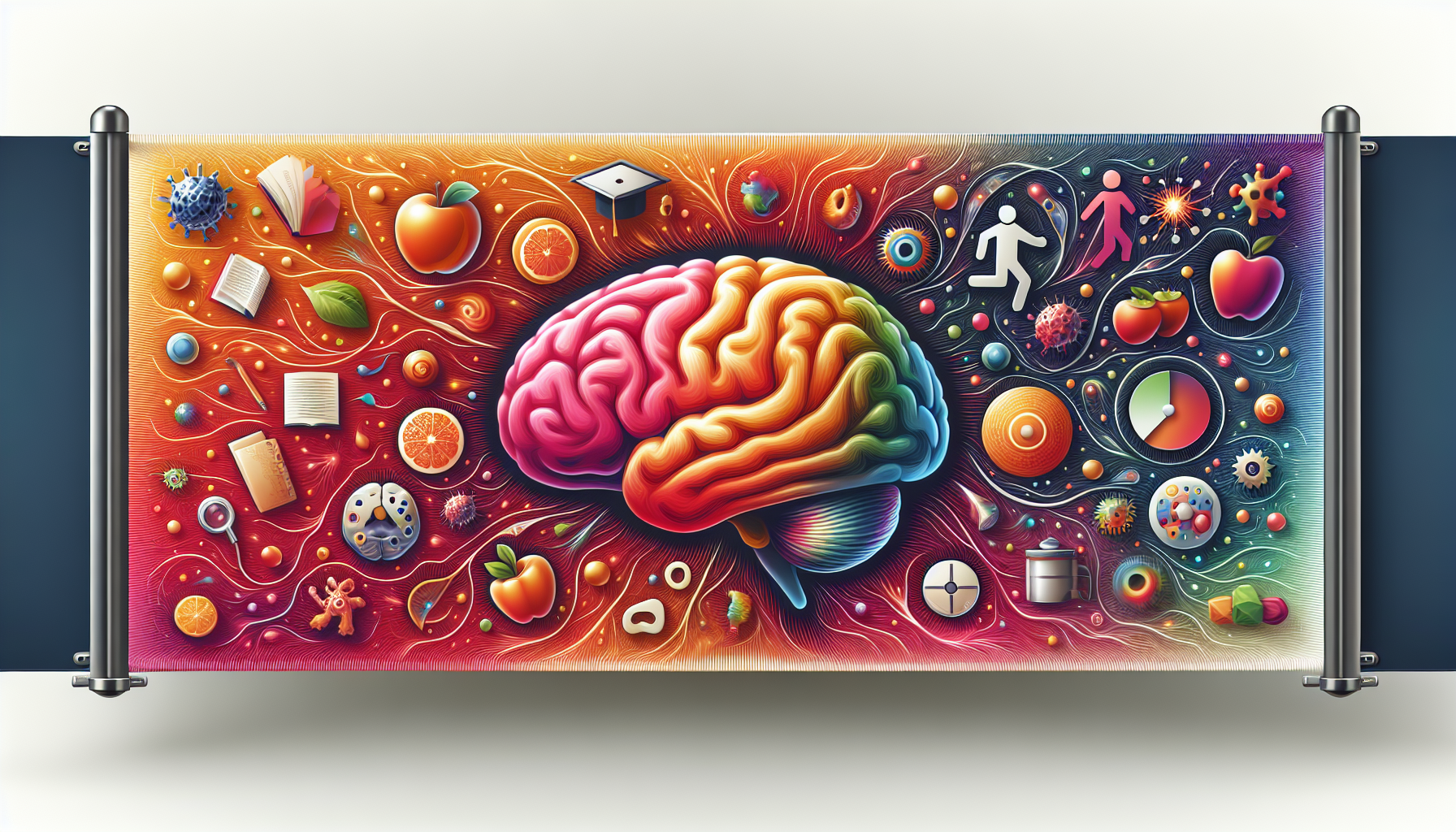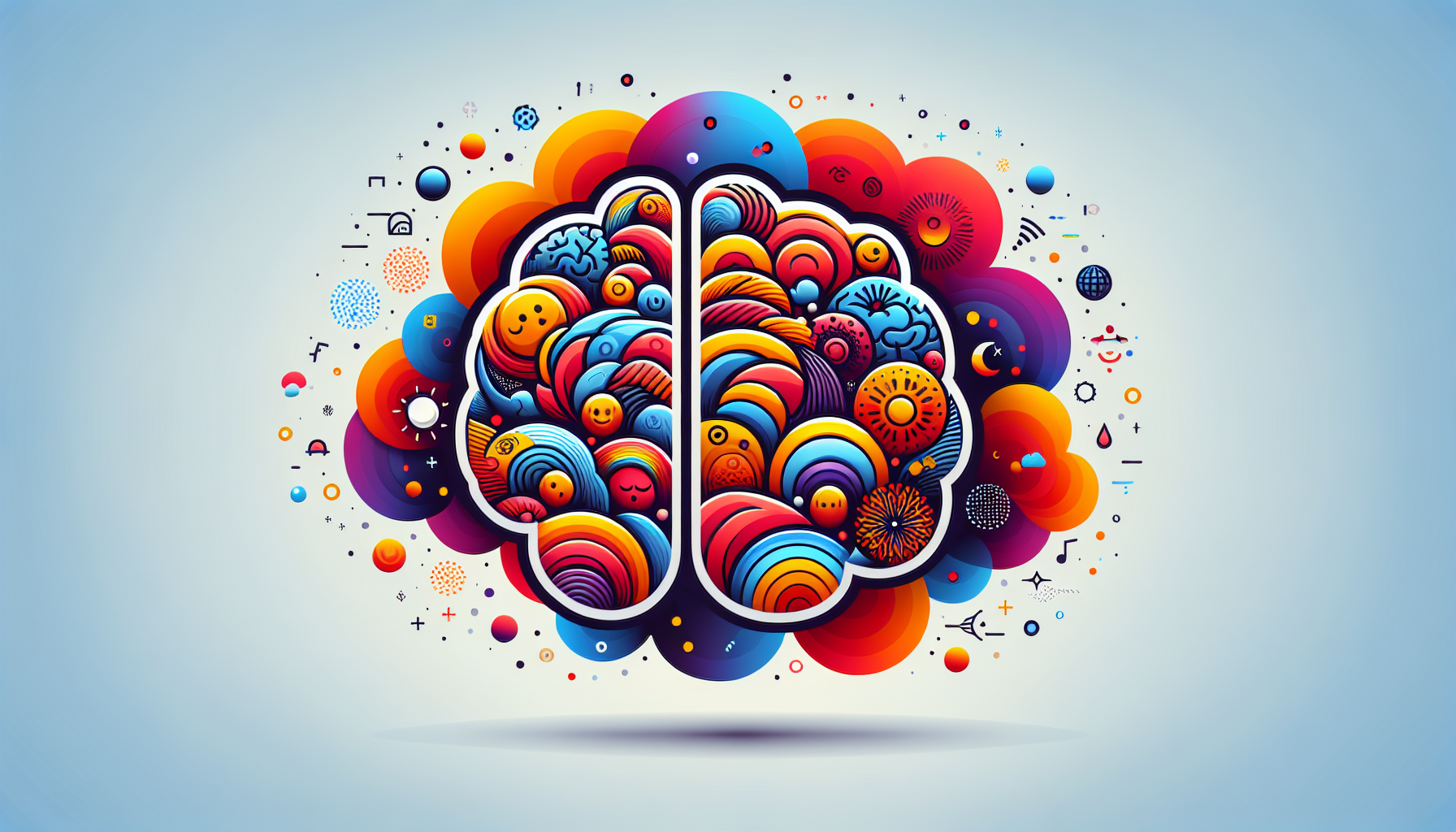On this page
Sandrine Thuret's TED talk discusses the study of adult neurogenesis, the growth of new nerve cells, which is an emerging field. It is now known that the hippocampus, a brain structure significant in learning and memory, can generate new neurons. These new neurons play a crucial role in memory differentiation and spatial recognition and are also linked to depression. Behaviors, activities, and diet can influence neurogenesis. Physical activity, particularly running, and a diet with calorie restriction, flavonoids, and omega-3 fatty acids can increase neurogenesis, while stress, sleep deprivation, and a diet high in saturated fats can decrease it. The texture of food also impacts neurogenesis, with crunchy foods promoting it. Understanding and controlling neurogenesis is essential as it may help treat cognitive disorders and depression.
How does it apply to you?
Understanding neurogenesis can have profound implications for our health and well-being. By adopting certain lifestyle habits and dietary choices, we can potentially enhance the production of new neurons, thereby improving our memory, mood, and overall cognitive function. This knowledge can also be applied in the treatment of various neurological and mental health conditions.
Applied Learning to Developer Enablement
The concept of neurogenesis can be applied to software development and learning in a software development organization in several ways. For example, understanding how the brain generates new neurons and how this process is influenced by factors such as stress, sleep deprivation, diet, and physical activity can help organizations create healthier work environments that promote cognitive health and productivity.
- Continuous Learning: Just like the brain generates new neurons, software developers need to continuously learn new technologies and methodologies to stay relevant in the field. Encouraging continuous learning can lead to better problem-solving abilities and innovative solutions.
- Healthy Work Environment: Understanding that stress and sleep deprivation can decrease neurogenesis, software development organizations can implement policies to reduce employee stress and ensure work-life balance. This could include flexible work hours, mental health days, and initiatives to promote physical health.
- Physical Activity: The research shows that physical activity, like running, can increase the production of new neurons. Organizations can encourage physical activity among employees by providing gym memberships, organizing physical activities, or creating a conducive environment for exercise.
- Diet: The intake of certain nutrients can either increase or decrease the production of new neurons. Organizations can provide healthy meal options in the cafeteria or organize health and wellness seminars to educate employees on the importance of a balanced diet.
- Mental Health: There is a clear link between neurogenesis and depression. By promoting a healthy lifestyle that encourages neurogenesis, organizations can help improve the mental health of their employees, leading to increased productivity and a more positive work environment.
Developer Checklist
Promoting Neurogenesis
Summary
Adult Neurogenesis: A Recent Field of Study
The concept of adult neurogenesis, or the ability for adults to grow new nerve cells, is a relatively new field of research. This has led to some confusion and a lack of knowledge among medical professionals who were not taught about the phenomenon during their education. The speaker gives an example of a conversation with an oncologist colleague who was puzzled by patients exhibiting symptoms of depression after being cured of cancer. The speaker explains that the drugs used to stop cancer cell multiplication also halt the generation of new neurons in the brain.
The Role of the Hippocampus in Neurogenesis
The hippocampus, a structure in the center of the brain, is known for its significance in learning, memory, mood, and emotion. Recent studies have revealed that the hippocampus is one of the few areas of the adult brain where new neurons can be generated. This process, called neurogenesis, can result in the production of an estimated 700 new neurons per day. By the time a person reaches 50, all the neurons they were born with in the hippocampus will have been replaced with adult-born neurons.
The Importance of New Neurons
New neurons play a crucial role in learning and memory, particularly spatial recognition. They contribute to the quality of memory and help differentiate very similar memories. There is a clear link between neurogenesis and depression, as seen in animal models where a lower level of neurogenesis is observed. Antidepressants can increase the production of new neurons and decrease symptoms of depression, indicating the potential role of neurogenesis in treating mood disorders.
Controlling Neurogenesis
Neurogenesis can be influenced by various behaviors and activities. For instance, learning and sex can increase the production of new neurons, while stress and sleep deprivation can decrease neurogenesis. The rate of neurogenesis decreases as we age, but it still continues. Running is also suggested to have a positive impact on neurogenesis.
Impact of Activity on Neurogenesis
Physical activity can influence neurogenesis, the process of creating new neurons. A comparison is made between two mice, one with a running wheel and one without. The mouse with the running wheel showed a significant increase in new neurons, represented by black dots, in the hippocampus, a region of the brain associated with learning and memory.
Influence of Diet on Neurogenesis
Diet also affects neurogenesis. The intake of certain nutrients can either increase or decrease the production of new neurons. For instance, calorie restriction of 20 to 30 percent, intermittent fasting, intake of flavonoids found in dark chocolate or blueberries, and omega-3 fatty acids found in fatty fish like salmon can increase neurogenesis. Conversely, a diet high in saturated fat, and alcohol consumption can decrease neurogenesis. However, resveratrol found in red wine can promote the survival of new neurons.
Texture of Food and Neurogenesis
The texture of food can also impact neurogenesis. Soft diet impairs neurogenesis, while food that requires mastication or is crunchy promotes neurogenesis.
Diet's Impact on Memory and Mood
The effect of diet on memory and mood may be mediated by the production of new neurons in the hippocampus. For example, calorie restriction can improve memory capacity, whereas a high-fat diet can exacerbate symptoms of depression. Omega-3 fatty acids, which increase neurogenesis, can help decrease symptoms of depression.
Importance of Understanding and Controlling Neurogenesis
For neuroscientists, it is critical to better understand the function of new neurons and how to control their survival and production. It's also important to find ways to protect neurogenesis in patients with cognitive disorders.
Importance of Aerobic Exercise
While running has been shown to stimulate neurogenesis, other forms of aerobic exercise that increase blood flow to the brain could also be beneficial.
FAQs
What is adult neurogenesis? Adult neurogenesis is the ability for adults to grow new nerve cells.
What role does the hippocampus play in neurogenesis? The hippocampus, a structure in the center of the brain, is known for its significance in learning, memory, mood, and emotion. It is one of the few areas of the adult brain where new neurons can be generated.
What is the importance of new neurons? New neurons play a crucial role in learning and memory, particularly spatial recognition. They contribute to the quality of memory and help differentiate very similar memories. There is a clear link between neurogenesis and depression, as seen in animal models where a lower level of neurogenesis is observed.
How can neurogenesis be controlled? Neurogenesis can be influenced by various behaviors and activities. For instance, learning and sex can increase the production of new neurons, while stress and sleep deprivation can decrease neurogenesis.
What is the impact of physical activity on neurogenesis? Physical activity can influence neurogenesis, the process of creating new neurons. For example, running has been shown to significantly increase the production of new neurons.
How does diet affect neurogenesis? The intake of certain nutrients can either increase or decrease the production of new neurons. For instance, calorie restriction, intermittent fasting, intake of flavonoids found in dark chocolate or blueberries, and omega-3 fatty acids found in fatty fish like salmon can increase neurogenesis. Conversely, a diet high in saturated fat, and alcohol consumption can decrease neurogenesis.
How does the texture of food impact neurogenesis? Soft diet impairs neurogenesis, while food that requires mastication or is crunchy promotes neurogenesis.
What is the impact of diet on memory and mood? The effect of diet on memory and mood may be mediated by the production of new neurons in the hippocampus. For example, calorie restriction can improve memory capacity, whereas a high-fat diet can exacerbate symptoms of depression.
Why is it important to understand and control neurogenesis? For neuroscientists, it is critical to better understand the function of new neurons and how to control their survival and production. It's also important to find ways to protect neurogenesis in patients with cognitive disorders.
What is the importance of aerobic exercise in relation to neurogenesis? While running has been shown to stimulate neurogenesis, other forms of aerobic exercise that increase blood flow to the brain could also be beneficial.
Glossary
Adult Neurogenesis: The concept of adult neurogenesis, or the ability for adults to grow new nerve cells, is a relatively new field of research. This has led to some confusion and a lack of knowledge among medical professionals who were not taught about the phenomenon during their education.
Hippocampus: The hippocampus, a structure in the center of the brain, is known for its significance in learning, memory, mood, and emotion. Recent studies have revealed that the hippocampus is one of the few areas of the adult brain where new neurons can be generated.
Neurons: New neurons play a crucial role in learning and memory, particularly spatial recognition. They contribute to the quality of memory and help differentiate very similar memories. There is a clear link between neurogenesis and depression, as seen in animal models where a lower level of neurogenesis is observed.
Neurogenesis: Neurogenesis can be influenced by various behaviors and activities. For instance, learning and sex can increase the production of new neurons, while stress and sleep deprivation can decrease neurogenesis. The rate of neurogenesis decreases as we age, but it still continues.
Physical Activity: Physical activity can influence neurogenesis, the process of creating new neurons. A comparison is made between two mice, one with a running wheel and one without. The mouse with the running wheel showed a significant increase in new neurons, represented by black dots, in the hippocampus, a region of the brain associated with learning and memory.
Diet: Diet also affects neurogenesis. The intake of certain nutrients can either increase or decrease the production of new neurons. For instance, calorie restriction of 20 to 30 percent, intermittent fasting, intake of flavonoids found in dark chocolate or blueberries, and omega-3 fatty acids found in fatty fish like salmon can increase neurogenesis. Conversely, a diet high in saturated fat, and alcohol consumption can decrease neurogenesis.
Texture of Food: The texture of food can also impact neurogenesis. Soft diet impairs neurogenesis, while food that requires mastication or is crunchy promotes neurogenesis.
Memory and Mood: The effect of diet on memory and mood may be mediated by the production of new neurons in the hippocampus. For example, calorie restriction can improve memory capacity, whereas a high-fat diet can exacerbate symptoms of depression.
Understanding and Controlling Neurogenesis: For neuroscientists, it is critical to better understand the function of new neurons and how to control their survival and production. It's also important to find ways to protect neurogenesis in patients with cognitive disorders.
Aerobic Exercise: While running has been shown to stimulate neurogenesis, other forms of aerobic exercise that increase blood flow to the brain could also be beneficial.




